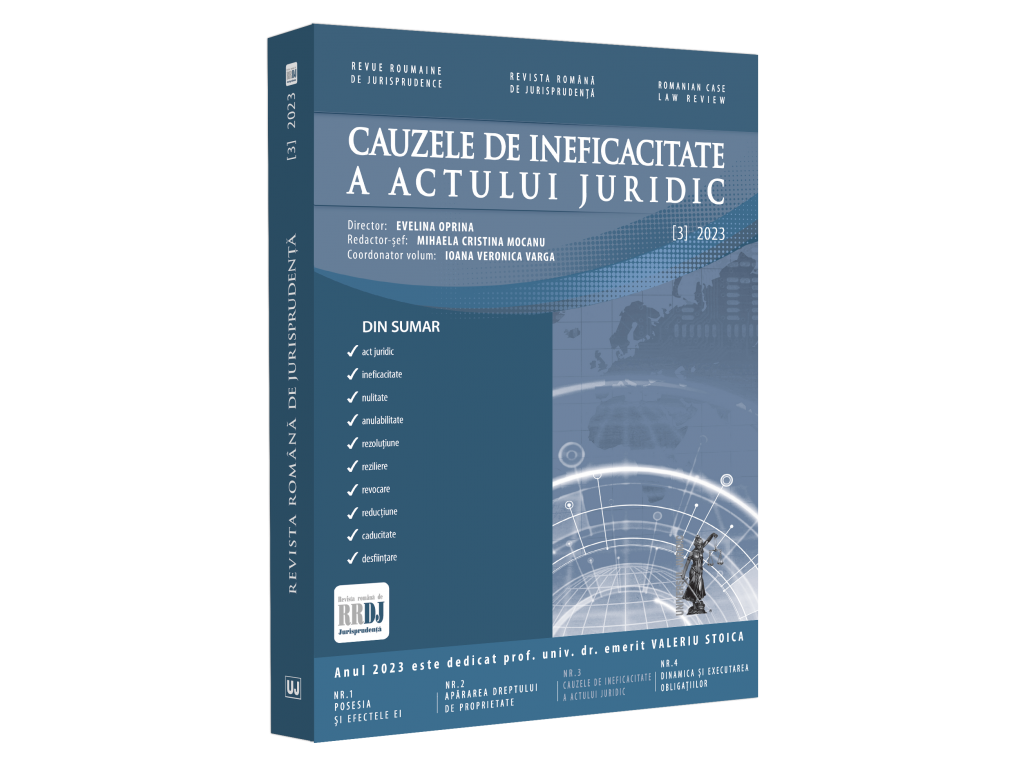Machinery Sale Contract. Partial Non-Performance of Contract. Partial Resolution
JURISPRUDENȚĂ COMENTATĂ ȘI ADNOTATĂ
Abstract
According to art. 1.270 Civil Code, the contract is the law of the parties. The pacta sunt servanda principle establishes the rule that the rights and obligations assumed by the contract are binding, and the parties are obliged to comply with them. This rule cannot be derogated from, only in exceptional situations and exceptional circumstances. In the same vein, the courts cannot intervene in the contract either, except when there is a total or partial non-execution or a defective execution of the contractual obligations that attracts contractual liability. The partial execution of the contractual obligations entitles the creditor of the obligation to the partial resolution of the contract, within the limit of the unexecuted obligation. According to the principle of restitutio in integrum, the creditor of the unexecuted obligation can obtain, as an effect of the resolution, the partial restitution of benefits, within the limit of the unexecuted obligation.
When the object of the debtor's obligation is the delivery of several goods, for which distinct prices have been established, and the compliant delivery is made according to the contract, only with regard to part of the goods, the resolution can be invoked only with regard to the unexecuted performance, following that the restitution benefits to cover exclusively the sums of money paid for the delivery of the non-conforming good. Also, when the delivery of the goods is contractually conditional on the payment of a price difference, this can only be achieved after the payment of the amounts established according to the contract. As such, the debtor of the delivery obligation can invoke the exception of non-performance of the contract which paralyzes any late penalties that could be requested for non-delivery on time.








